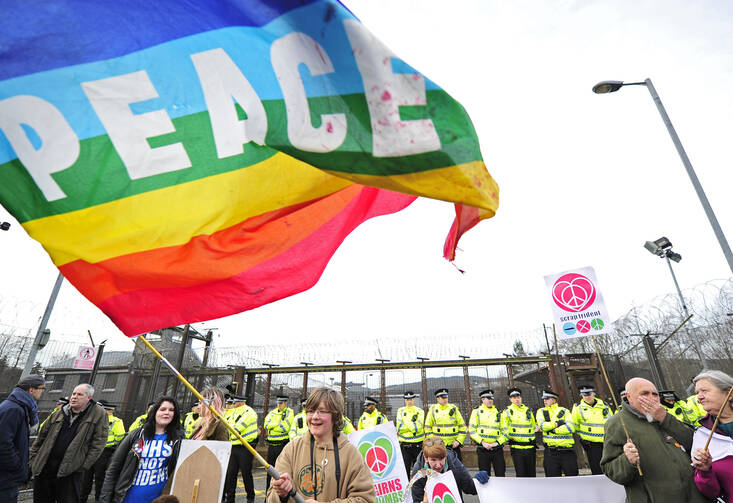The conference on nuclear disarmament at the United Nations ended on May 22 not with a bang but a whimper. After weeks of wrangling, the review conference on the 1970 Nuclear Non-Proliferation Treaty, which convenes every five years, had at its tepid close little to show in the way of accomplishment—again. It did not succeed in establishing new goals for weapons reduction or new strategies for curtailing the proliferation of nuclear weapons-grade materials. In fact, participants were unable even to agree on a joint final statement, bogged down as they were in renewed discord over a proposed regional conference to negotiate a nuclear weapons-free zone in the Middle East.
This discouraging outcome suggests five more years of geopolitical drift instead of progress on the reduction of nuclear weapons, five years during which 59 nations with access to fissile materials—highly enriched uranium and plutonium that can be used in the production of nuclear weapons—may be tempted to take steps toward joining the nine declared nuclear-armed states. To describe this as a “missed opportunity” deeply diminishes the nature of the threat the treaty signatories have neglected for another half decade. Drew Christiansen, S.J., distinguished professor of ethics and global development at Georgetown University and former editor in chief of America, warns that after two review failures in a row, the treaty’s “binding power is weakening.”
That is a prospect that should be setting off alarms but seems to have inspired only pro forma notes of regret. The world has made welcome progress in recent decades in reducing stockpiles of nuclear weapons and fissile materials, but that progress has been stalled for years even as new tensions between nuclear-armed powers have emerged.
Those escalating tensions, while they make negotiations more difficult, are dramatic evidence of the pressing need for progress toward disarmament. Some 16,000 nuclear warheads are still in service in potential theaters of conflict around the world; 1,800 of them are on high alert status, ready to be launched within 15 minutes.
Meanwhile, the continued production and maintenance of nuclear weapons pose an inestimable threat to workers, host communities, military staff and the environment; and fissile material remains vulnerable to terrorist acquisition. The United States and Russia, instead of working together to reboot the joint progress on disarmament made in the near past, are preparing what may turn out to be a new arms race. Modernization programs on both sides will divert billions of dollars from the needs of vulnerable people around the world to the service of “improving” and reproducing weapons whose potential use and upkeep are already a moral scandal and a budgetary drain.
It is essential, of course, to restore credibility and effectiveness to the N.P.T. process, but the rest of the world should not sit idly by as leaders of nuclear-armed states sideline themselves from the discussion. A growing civic-society effort to outlaw nuclear weapons, the International Campaign to Abolish Nuclear Weapons, promises to shame nuclear powers into action.
The Vatican and the U.S. bishops have in recent months given reinvigorated attention to this existential global threat. Statements by the Holy See have challenged the moral legitimacy of the policy of deterrence, and the bishops in April urged renewed U.S. attention to disarmament. The church has reiterated its longstanding belief that complete nuclear disarmament is the world’s only moral option. The Vatican should keep this matter before the eyes of the international public even as it ratchets up the pressure on geopolitical leaders. The church can be a powerful ally to anti-nuke campaigners, providing spiritual sustenance to the movement as well as a credible and comprehensive analysis of the practical ethics of disarmament.
Meanwhile, the United States should reconsider its recurring role as protector of Israel’s nuclear ambiguity and urge this undeclared nuclear power to come clean on its capacity and the potential hazards created by its nuclear weapons program. That could provide a welcome boost to the legitimacy and credibility of the treaty enterprise itself.
Geopolitical leaders need to take responsibility for recent N.P.T. failures and seek new ways to prevent nuclear harm. If the N.P.T. process is indeed hopelessly stalled, progress must be sought by other avenues. Cooperative threat reduction has been a victim of the recent deterioration in relations between the United States and the Russian Federation. That essential effort secures and neutralizes nuclear materials scattered around the former Soviet Union. Reviving it, despite tensions over the crisis in Ukraine, could help restore the cooperative ethos now draining from the N.P.T. process. That may be enough to get it back on track toward its long-term goal of a nuclear weapons-free world.








